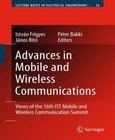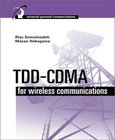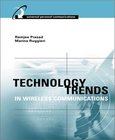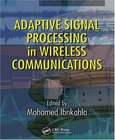Wireless Communications
Principles and Practice
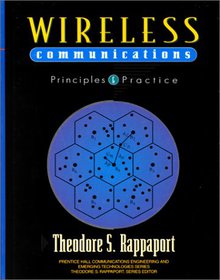
Book Details:
| Publisher: | Ieee |
| Series: | MIX , Principles |
| Author: | Theodore S. Rappaport |
| Edition: | 1 |
| ISBN-10: | 0780311671 |
| ISBN-13: | 9780780311671 |
| Pages: | 641 |
| Published: | Feb 01 1996 |
| Posted: | Nov 19 2014 |
| Language: | English |
| Book format: | |
| Book size: | 19.66 MB |
Book Description:
As cellular telephones become commonplace business tools, interest in wireless technology is booming. This book responds to that demand with a comprehensive survey of the field, suitable for educational or technical use. Materials are drawn from academic and business sources, numerous journals, and an IEEE professional reader. Extensively illustrated, Wireless Communications is filled with examples and problems, solved step by step and clearly explained.Wireless Communications covers the design fundamentals of cellular systems, including issues of frequency reuse, channel assignments, radio propagation, and both analog and digital modulation techniques. Speech coding, channel coding, diversity, spread spectrum, and multiple access are also discussed. A separate chapter is devoted to wireless networking, including SS7 and ISDN.Beyond theory,Wireless Communications offers practical reference sections, including: * Complete technical standards for cellular, cordless telephone, and personal communications systems * International standards for Europe, the Americas, and the Asia-Pacific region * Noise figure calculations and Gaussian approximations of spread spectrum CDMA interference * Mathematical tables, identities, and the Q, erf, and erf functions * Glossary of abbreviations and acronyms * Full list of references This book is designed for use in graduate and undergraduate classrooms, but is also suitable for use by professional engineers and technicians. It can be used for both teaching and reference, and is also appropriate for the interested cellular phone consumer who wants to understand the technology.
Download Link:
Related Books:
Advances in Mobile and Wireless Communications
Views of the 16th IST Mobile and Wireless Communication Summit
TDD-CDMA for Wireless Communications
This resource offers a comprehensive description of TDD-CDMA technology. It presents in-depth coverage of the important TDD-based standards, including the 3GPPs TD-CDMA for UMTS, and TD-SCDMA, the Chinese 3G standard. The authors discuss the differences between the TDD and FDD modes of CDMA, and uncover the advantages of TD-CDMA in 3G systems....
Technology Trends in Wireless Communications
A guide to the technology details you need to know to prepare yourself and your organization for tomorrow's world of wireless multimedia. It includes in-depth discussions on topics in this area, including AAA, multiple access protocols, IPv6 and adaptive technologies. Such resource management strategies as power control, user admission techniques, and congestion control are explained....
Adaptive Signal Processing in Wireless Communications
Adaptive techniques play a key role in modern wireless communication systems. The concept of adaptation is emphasized in the Adaptation in Wireless Communications Series through a unified framework across all layers of the wireless protocol stack ranging from the physical layer to the application layer, and from cellular systems to next-generation wireless networks. This specific volume, Adaptive Signal Processing in Wireless Communications is devoted to adaptation in the physical layer. It gives an in-depth survey of adaptive signal processing techniques used in current and future generations of wireless communication systems. Featuring the work of leading international experts, it covers adaptive channel modeling, identification and equalization, a...
2007 - 2021 © eBooks-IT.org

